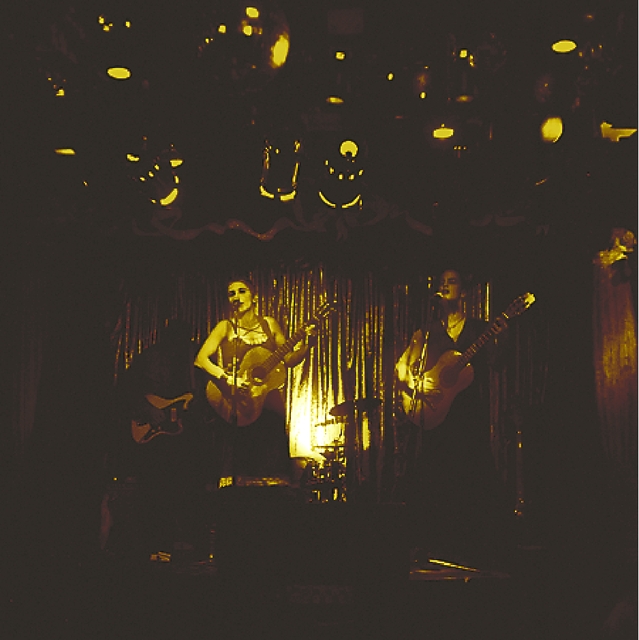Dawn McCarthy is an adventurer. When the musician behind Faun Fables answers the phone for this interview, the rushing wind and frequent connection breaks make it clear she’s on the road, in some rural area without good reception. A baby’s constant fussing and car noises increase the ambient fuzz, but through it all, McCarthy’s voice is calm and focused. The Bay Area-based musician has done plenty of touring—solo, as a duo, with a band and now with a new kind of group. “We have our kids with us. We have a really young one—4 months old—and we have a 2-year-old,” she says. “So it’s kind of an experiment.” Since McCarthy and the other half of Faun Fables, husband Nils Frykdahl, have already been on tour for a month and a half, it appears the experiment is working. Faun Fables’ music—weird, lovely, moving and soaked with traditional Eastern European influence—is also a result of her adventuring and experimenting. She grew up with musician parents, and she had siblings with whom she played in bands. Among other schooling, McCarthy trained with the Staniewski Centre for Theatre Practices in Poland. “Gardzienice,” so nicknamed for the tiny village in which it’s located, is a small but renowned and rigorous physical theater group that investigates the use of song and music in theatrical performance. They push the limits of what their bodies and voices can do, searching for something primal that speaks to audiences on a visceral level. Since McCarthy is deeply entwined with music’s relation to physicality, it makes sense she’d be attracted to this group. There is a definite visceral resonance in Faun Fables’ work. “I’ve got some kind of Eastern European connection,” McCarthy says. “Like there’s something in the soul of that place that I feel a connection to; there’s kind of a gravity there.” Also interesting to her is that in Eastern Europe, it’s not unusual for women to sing from a very deep guttural place. That kind of sound from a woman’s throat might stand out here in the States—but in Poland, at least in her training, it’s where everyone starts.Watching or listening to Faun Fables makes it clear: McCarthy and Frykdahl are not worried about fitting into a genre, or even a discipline. From chanting to wailing to sweet lullaby crooning, McCarthy tests the limits of her voice. Frykdahl goes to town with flute, castanets and everything in between—strings, percussion and rhythm are all explored. From an early age, songs have come naturally to McCarthy. For her, playing music in a band smoothly transitioned into including simple physicality and exploring how a show could be a theatrical experience. But although McCarthy has written and directed for the theater, going to a Faun Fables show will not be like watching a play. They might wear costumes but “it’s not so much about pretending to be someone else.”
Faun FablesThursday, Nov. 11, 8:30 p.m.Low Spirits2823 Second Street NWTickets: $8 to $12, 21-and-overlowspiritslive.com



